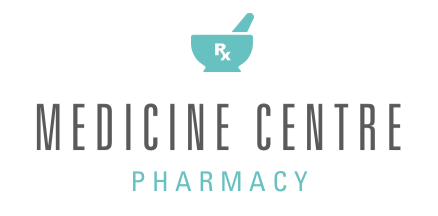To Visit Online Pharmacy Click HERE ↓
New Research on Premarin and Breast Cancer: What You Need to Know
Premarin, a hormone replacement therapy drug used to relieve menopausal symptoms, has been a topic of controversy due to its potential link to breast cancer. Understanding the relationship between estrogen and breast cancer is crucial in examining the effects of Premarin. It is important to examine the mechanisms of Premarin and its potential risks to fully comprehend the recent research findings. Debunking myths and misconceptions about Premarin is also important to provide accurate information to menopausal women. Weighing the benefits and risks of Premarin therapy, as well as exploring alternatives to the drug, is essential in making informed decisions about menopausal symptom management.
Premarin, a hormone replacement therapy drug used to relieve menopausal symptoms, has been a topic of controversy due to its potential link to breast cancer. Understanding the relationship between estrogen and breast cancer is crucial in examining the effects of Premarin. It is important to examine the mechanisms of Premarin and its potential risks to fully comprehend the recent research findings. Debunking myths and misconceptions about Premarin is also important to provide accurate information to menopausal women. Weighing the benefits and risks of Premarin therapy, as well as exploring alternatives to the drug, is essential in making informed decisions about menopausal symptom management. Natural remedies for menopausal symptoms can be explored as an alternative to Premarin therapy. It is important for menopausal women to consult with their healthcare provider before making any decisions about hormone replacement therapy or other treatment options.
Exploring the Relationship between Estrogen and Breast Cancer
The second point in the article discusses the relationship between estrogen and breast cancer. Estrogen is a hormone that promotes the growth and development of breast tissue. This makes it a potential risk factor for breast cancer. When estrogen levels are high, it can stimulate cell growth and increase the likelihood of mutations occurring in the DNA of breast cells. However, estrogen is not the only factor involved in the development of breast cancer, and the relationship between estrogen and breast cancer is complex. There are different types of estrogen, and different factors can affect how estrogen affects breast tissue. Understanding this relationship is crucial for evaluating the potential risks and benefits of hormone therapy like Premarin for menopausal women.
The second point in the article discusses the relationship between estrogen and breast cancer. Estrogen is a hormone that promotes the growth and development of breast tissue. This makes it a potential risk factor for breast cancer. When estrogen levels are high, it can stimulate cell growth and increase the likelihood of mutations occurring in the DNA of breast cells. However, estrogen is not the only factor involved in the development of breast cancer, and the relationship between estrogen and breast cancer is complex. There are different types of estrogen, and different factors can affect how estrogen affects breast tissue. Understanding this relationship is crucial for evaluating the potential risks and benefits of hormone therapy like Premarin for menopausal women.
Understanding the Mechanisms of Premarin and its Potential Risks
Premarin is a hormone replacement therapy that has been used for decades to treat menopausal symptoms, including hot flashes, night sweats, and vaginal dryness. Premarin is made from conjugated estrogens, which are derived from the urine of pregnant mares. However, the use of Premarin has been controversial due to concerns about its potential risks, including an increased risk of breast cancer. While the exact mechanisms of how Premarin may increase the risk of breast cancer are not fully understood, recent research has shed light on this issue.
In this article, we will explore the relationship between estrogen and breast cancer, the potential risks associated with Premarin, recent research findings on whether or not Premarin increases breast cancer risk, and debunk myths and misconceptions about Premarin and breast cancer. We will also discuss natural remedies for menopausal symptoms and weigh the benefits and risks of Premarin therapy for menopausal women. If you are considering Premarin therapy, it is important to be informed and understand the potential risks and benefits of this treatment option.
Recent Research Findings: Does Premarin Increase Breast Cancer Risk?
Recent studies have been conducted to determine whether Premarin, a popular hormone therapy used to relieve menopausal symptoms, increases the risk of breast cancer. While some studies have suggested a link between Premarin use and an increased risk of breast cancer, others have found no significant association. Factors such as the duration and dosage of use, as well as a woman's age and family history, may also affect the potential risks. The findings from these studies have sparked ongoing debate within the medical community about the safety and effectiveness of Premarin therapy.
In order to better understand the controversy and potential risks associated with Premarin and breast cancer, it is important to explore the relationship between estrogen and breast cancer, as well as the mechanisms of action of Premarin within the body. Additionally, recent research findings must be considered and any myths or misconceptions debunked. Finally, women must weigh the benefits and risks of Premarin therapy against alternative natural remedies for menopausal symptoms.
Debunking Myths and Misconceptions about Premarin and Breast Cancer
One common myth about Premarin and breast cancer is that they are directly linked. Premarin is a hormone therapy used to treat menopausal symptoms, while breast cancer is a form of cancer that affects the breast tissue. While some studies have shown an increased risk of breast cancer among women who use hormone therapy, it is important to note that this risk is relatively small and depends on the duration of the therapy. Additionally, other factors such as age, family history, and lifestyle choices also play a role in a woman's risk of developing breast cancer. Therefore, it is essential to understand the facts and debunk misconceptions about Premarin and breast cancer.
One of the main factors in understanding the relationship between Premarin and breast cancer is the role of estrogen. Estrogen is a hormone that plays a crucial role in the growth and development of breast tissue. However, high levels of estrogen have also been linked to an increased risk of breast cancer. Since Premarin is made from the urine of pregnant mares, it is a form of estrogen replacement therapy (ERT). Understanding the mechanisms of how Premarin works in the body and how it affects estrogen levels is crucial in evaluating its potential risks for breast cancer. In this article, we will delve deeper into the research on Premarin and breast cancer to provide readers with the latest findings and guidance on this controversial topic.
Weighing the Benefits and Risks of Premarin Therapy for Menopausal Women
Menopause brings about several changes in women's lives, and one of the most challenging ones is experiencing hot flashes, vaginal dryness, and mood swings. Doctors may prescribe hormone replacement therapy (HRT) to manage these symptoms, with Premarin being the most widely used drug. However, Premarin's side effects, such as an increased risk of breast cancer, have prompted women to consider the benefits and risks of the drug. While some women report significant relief from HRT, others prefer to use natural remedies or other medications. It is, therefore, essential to understand the potential risks and benefits of Premarin therapy and weigh them against individual preferences and health status.
In recent years, the use of Premarin has been a subject of controversy due to its potential link to breast cancer. Medical experts have been exploring the complex relationship between estrogen and breast cancer and the mechanisms of how Premarin works in the body. In this article, we will delve into recent research findings to determine whether Premarin indeed increases breast cancer risk. Additionally, we will dispel common myths and misconceptions about Premarin and provide alternatives to menopausal women who wish to manage their symptoms naturally. Ultimately, the goal of this article is to provide readers with the information they need to make informed decisions about their health and well-being.
Alternatives to Premarin: Natural Remedies for Menopausal Symptoms
Menopause can bring on a host of uncomfortable symptoms, including hot flashes, mood swings, and insomnia. While hormone replacement therapy (HRT) featuring Premarin has long been prescribed to alleviate these problems, it has also been linked to an increased risk of breast cancer. For women who are concerned about this potential risk, there are several natural remedies and lifestyle changes that may offer relief from menopausal symptoms without the need for prescription drugs. These include dietary modifications, supplements, exercise, and stress reduction techniques.
However, it's important to understand the relationship between estrogen and breast cancer before making any decisions about HRT. Estrogen is a naturally occurring hormone in women that plays a crucial role in the development and maintenance of female reproductive organs. However, it can also stimulate the growth of breast cancer cells. This has led to concern about the use of HRT featuring estrogen, such as Premarin, and its potential to increase breast cancer risk. In this article, we'll explore the mechanisms of Premarin and recent research findings to better understand the risks and benefits of this therapy.

